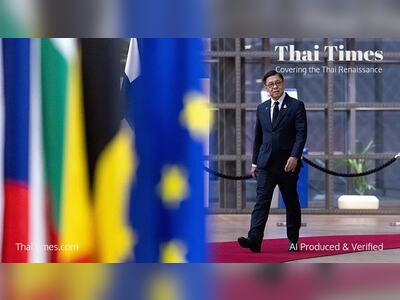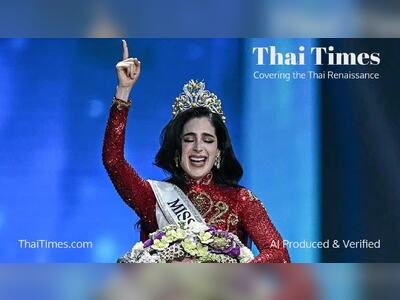0:00
0:00
Shift in Thai Social Dynamics Leads to Changes in Romance Spending
Increasing singlehood among Thais impacts traditional celebrations and floral purchases, reflecting new social norms and lifestyle choices.
In Thailand, societal shifts are leading to an increase in the number of individuals choosing to remain single, which is influencing spending patterns in the romance sector.
According to a survey conducted by the National Statistical Office in 2023, approximately one-fifth of Thailand's population identifies as single.
This trend is particularly notable among the reproductive age group of 15 to 49, which encompasses 40.9% of the national demographic, with a significant number residing in urban areas.
The rising single status is attributed to various factors, including changing social values, a lack of financial readiness for marriage, and evolving personal expectations of romantic partnerships.
A prominent lifestyle trend identified is termed 'Single Income, No Kids' (SINK), where individuals prioritize personal satisfaction through expenditures on travel, beauty, housing, and dining instead of traditional commitments like marriage.
Several individuals express a desire for romantic partnerships but choose to delay marriage due to financial concerns.
The sentiment among this group underscores a belief that entering a marriage without sufficient preparation could restrict them in other areas of life.
The report also indicates that heightened expectations concerning partners' attributes, such as height, income, and relationship history, contribute to this hesitation.
Additionally, increased work hours for single professionals are cited as barriers to building new relationships.
Despite economic challenges, some segments of the population continue to pursue marriage.
Setthawut Naruemityarn, the operator of Wedding is 'ME,' a wedding planning service, observed that while higher-earning couples still opt to marry, there is a discernible decline in overall wedding expenditure.
Naruemityarn noted a pronounced shift toward smaller, more intimate celebrations reflecting contemporary attitudes in Thai wedding culture.
Traditionally, many couples' parents belonged to the baby boomer generation (born between 1946-1964), who prioritized social status and extensive gatherings.
However, the current parents, primarily from Generation Y and Z (born between the early 1980s and early 2010s), are inclined to adapt their children's weddings to contemporary preferences.
Couples now typically favor smaller assemblies, often around 100 guests, with a preference for cost-effective venues like restaurants or beaches rather than opulent hotel ballrooms.
The transformations in wedding practices are also mirrored in the floral business, as purchasing trends change.
Thonglor Kulabsawat, owner of Toi Flower Shop, remarked that younger consumers are less inclined to buy flowers compared to previous generations, often choosing lifestyle accessories instead.
To respond to shifting market demands, her shop has innovated with new floral designs and techniques.
Moreover, the increase in single individuals and a preference for pet ownership over child-rearing are contributing factors to the decline in flower sales.
However, Kulabsawat maintains an optimistic outlook, suggesting that as younger generations advance in life and responsibilities, the demand for floral purchases may rise in line with expanding social circles.
According to a survey conducted by the National Statistical Office in 2023, approximately one-fifth of Thailand's population identifies as single.
This trend is particularly notable among the reproductive age group of 15 to 49, which encompasses 40.9% of the national demographic, with a significant number residing in urban areas.
The rising single status is attributed to various factors, including changing social values, a lack of financial readiness for marriage, and evolving personal expectations of romantic partnerships.
A prominent lifestyle trend identified is termed 'Single Income, No Kids' (SINK), where individuals prioritize personal satisfaction through expenditures on travel, beauty, housing, and dining instead of traditional commitments like marriage.
Several individuals express a desire for romantic partnerships but choose to delay marriage due to financial concerns.
The sentiment among this group underscores a belief that entering a marriage without sufficient preparation could restrict them in other areas of life.
The report also indicates that heightened expectations concerning partners' attributes, such as height, income, and relationship history, contribute to this hesitation.
Additionally, increased work hours for single professionals are cited as barriers to building new relationships.
Despite economic challenges, some segments of the population continue to pursue marriage.
Setthawut Naruemityarn, the operator of Wedding is 'ME,' a wedding planning service, observed that while higher-earning couples still opt to marry, there is a discernible decline in overall wedding expenditure.
Naruemityarn noted a pronounced shift toward smaller, more intimate celebrations reflecting contemporary attitudes in Thai wedding culture.
Traditionally, many couples' parents belonged to the baby boomer generation (born between 1946-1964), who prioritized social status and extensive gatherings.
However, the current parents, primarily from Generation Y and Z (born between the early 1980s and early 2010s), are inclined to adapt their children's weddings to contemporary preferences.
Couples now typically favor smaller assemblies, often around 100 guests, with a preference for cost-effective venues like restaurants or beaches rather than opulent hotel ballrooms.
The transformations in wedding practices are also mirrored in the floral business, as purchasing trends change.
Thonglor Kulabsawat, owner of Toi Flower Shop, remarked that younger consumers are less inclined to buy flowers compared to previous generations, often choosing lifestyle accessories instead.
To respond to shifting market demands, her shop has innovated with new floral designs and techniques.
Moreover, the increase in single individuals and a preference for pet ownership over child-rearing are contributing factors to the decline in flower sales.
However, Kulabsawat maintains an optimistic outlook, suggesting that as younger generations advance in life and responsibilities, the demand for floral purchases may rise in line with expanding social circles.











